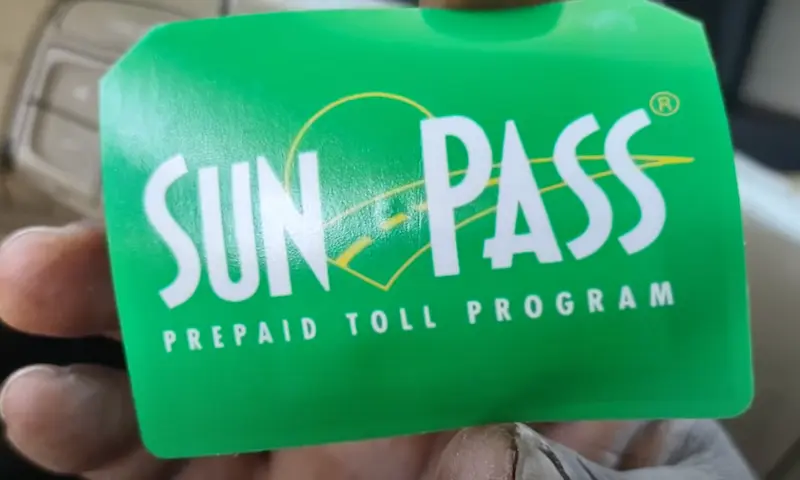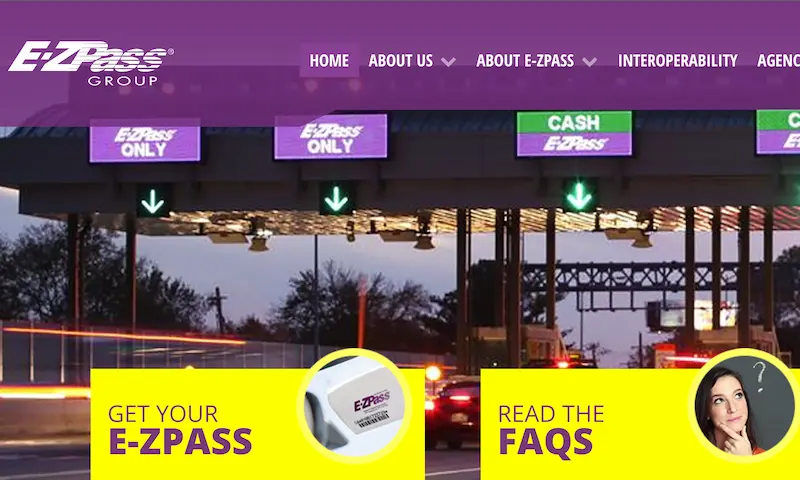If you’ve been racking up unpaid tolls, you might be wondering, “Can my license get suspended?” Yes, your driver’s license can indeed be suspended for unpaid tolls. This could lead to more fines and complications in your life. Staying informed and understanding the consequences will help you avoid unwanted surprises and get a handle on this issue. Keep reading to see how you can prevent this from happening.
The Legal Consequences of Toll Violations
Toll violations can lead to serious legal consequences. These include fines and penalties, as well as the possibility of your violation being classified as a misdemeanor.
Penalties for Unpaid Tolls
When you don’t pay your tolls, several penalties can come your way. In states like Florida, if you fail to pay the tolls, it can be considered a moving traffic violation. This can add points to your driving record, leading to license suspension if the points exceed a certain limit within a year.
Unpaid tolls can also result in late fees. Some states provide a grace period to pay. For example, Florida gives you seven days to pay the toll online. If you miss this period, additional fines and fees may apply, making the cost much higher than the toll itself.
In New York, failure to pay tolls can lead to your vehicle registration being suspended. Once you receive a notice for unpaid tolls, you generally have about 30 days to address the issue by paying the fines or contesting the violation.
Toll Violations as Misdemeanors
In certain cases, toll violations can be classified as misdemeanors. The seriousness of this classification depends largely on state laws and the nature of the violation.
In Florida, under Statute 316.1001, intentionally evading tolls can lead to severe consequences. If you’re pulled over and found to have multiple unpaid tolls, law enforcement officers may classify the incident as a misdemeanor.
Similarly, other states may treat repeated toll violations or failure to pay accumulated tolls as a criminal offense. This can result in not just fines but also a court appearance, which could impact your driving record and even lead to jail time in extreme cases.
Handling toll violations promptly can help you avoid these harsh legal consequences. Paying your tolls on time or resolving any issues quickly can save you from the heavy penalties associated with these offenses.
State-Specific Toll Rules and Regulations
Different states have their own set of rules and penalties for unpaid tolls. It’s important to understand these regulations to avoid unexpected fines or penalties such as license suspensions or vehicle registration suspensions.
New York State Toll Regulations
In New York State, the Department of Motor Vehicles (DMV) can suspend your vehicle registration if you fail to pay tolls. Under Section 510 (3) (d) of the New York State Vehicle and Traffic Law, if you miss paying tolls, fees, or other related charges for three violations within a five-year span, you may face suspension.
Late fees and additional penalties can increase the amount you owe. The New York State Thruway Authority oversees toll collections and penalties. Make sure to address any toll violations promptly to avoid severe repercussions.
New Jersey’s Approach to Toll Violations
New Jersey has its own way of handling toll violations. Here, the primary concern is ensuring compliance with toll payments. If you fail to pay tolls, you will receive a notice that can include additional fees and penalties, which can quickly add up.
While information specific to license suspension for unpaid tolls in New Jersey is not as readily detailed, it is known that heavy fines and legal actions can be taken. Always pay your tolls on time to avoid these issues.
Pennsylvania’s Toll Enforcement
Pennsylvania takes unpaid tolls seriously. According to Section 1380 (e) of the state’s toll regulations, if you have unpaid tolls while your registration is already suspended, an additional suspension can be imposed. This means you might face even stricter penalties if you continue to ignore toll charges.
To resolve unpaid toll issues, payments must be made to the Pennsylvania Turnpike Commission. You can avoid these additional penalties by ensuring that every toll charge is paid when due.
License Suspension for Unpaid Tolls
Unpaid tolls can lead to serious consequences, including the suspension of your driver’s license. The reasons for and duration of a license suspension can vary.
What Triggers a License Suspension
Your license can be suspended when you have multiple unpaid toll violations. For instance, failing to pay three or more toll violations within five years can cause your registration to be suspended. This applies to regular drivers. Commercial vehicle owners face suspension if they owe $200 or more in toll fees within five years.
You will receive a Notice of Registration Suspension from the New York State Department of Motor Vehicles (NYS DMV). The notice will list the violations and the amount owed. Contact the appropriate agency, such as the New York DMV or E-ZPass New York, to resolve the issue.
Definite vs. Indefinite Suspension
License suspensions can be definite or indefinite. A definite suspension means your license is suspended for a specified period. After the period, you must pay a reinstatement fee to get your license back.
An indefinite suspension does not have a set end date. Your license remains suspended until you take action, such as paying the outstanding tolls or fees. The New York Registration Suspension And Resolving NYS Toll Violations page explains that this type of suspension can occur if you don’t address your toll violations in a timely manner.
Ignoring indefinite suspensions can lead to further penalties, so it’s important to act quickly to resolve unpaid tolls and avoid complications.
Notices and Communications from the DMV
When your license is at risk of suspension for unpaid tolls, it’s crucial to pay attention to the notices and communications you receive from the DMV. These notices contain important information and require timely responses to avoid further penalties.
Receiving a Suspension Notice
The DMV typically sends suspension notices through mail. These notices inform you of the suspension and provide details such as the reason, effective date, and actions needed to address the issue. It’s important to read these notices carefully. Unpaid tolls may cause these notices to arrive, so stay vigilant in checking your mail.
Important details in a suspension notice:
- Reason for suspension
- Effective date
- Required actions to resolve the issue
Ignoring a suspension notice can lead to increased fines, further penalties, or even vehicle impoundment. Make sure your address is up to date with the DMV to receive all communications promptly.
Responding to a DMV Notice
When you receive a notice about your license suspension, respond promptly. Delays can worsen the situation. The notice will usually outline the steps to resolve the unpaid tolls, such as paying the fees or arranging a hearing.
Key actions to take:
- Payment: Settle any outstanding tolls and additional fines.
- Hearing request: If you believe there’s an error, request a hearing promptly.
- Proof of payment: Send proof of cleared payments to the DMV, as instructed.
Contact the DMV using the methods specified in the notice, such as phone, mail, or online portals. Timely and accurate responses can help restore your driving privileges without additional complications.
Effects of Suspension on Vehicle Registration
When your registration is suspended due to unpaid tolls, it has significant impacts on your ability to legally operate your vehicle and maintain your registration status. These effects can influence various aspects like renewing your registration and the consequences of driving with a suspended status.
How Suspension Affects Registration Status
If your registration is suspended due to unpaid tolls, you cannot legally drive your vehicle. According to New York DMV, unpaid toll violations lead to suspension if you have three or more violations within a five-year period. This suspension prevents you from using your vehicle until the issue is resolved.
Once your registration is suspended, your vehicle is considered unregistered. Operating an unregistered vehicle can result in fines, additional penalties, and increased insurance premiums. Law enforcement may impound your vehicle if you are caught driving with a suspended registration. It is crucial to promptly address toll violations to avoid these consequences.
Registration Suspensions and Renewals
When your registration is suspended, renewing it becomes a challenge. You must first settle all unpaid tolls and any associated fines. As eTags suggests, ensuring no toll violations on your record is essential before you can renew your vehicle registration.
To renew your registration after suspension, you need to provide proof of payment for all outstanding tolls. The DMV will verify the clearance of your penalties before allowing renewal. If you have paid everything, you can proceed with the registration renewal process either online or in person. Always check your toll payment status before attempting a renewal to avoid further complications.
Practical Tips for Avoiding and Managing Toll Violations
Managing and avoiding toll violations can help you save money and prevent penalties like license suspensions. By using electronic systems and arranging payment plans, you can navigate tollways without issues.
Using Transponders Like E-ZPass
One effective way to avoid toll violations is to use a transponder like E-ZPass. These devices attach to your vehicle and automatically deduct tolls from your prepaid account as you pass through toll booths.
This prevents missed payments and fines. E-ZPass also offers discounts on toll rates, making it a more economical choice for frequent drivers. When you set up an E-ZPass, ensure your account always has a sufficient balance.
You can manage the balance online or through the E-ZPass app. Some systems even allow automatic replenishment from your bank account or credit card. Keep the transponder correctly positioned on your vehicle’s windshield for uninterrupted service. If you encounter issues, contact their customer service center for assistance.
Setting Up Payment Plans
If you have unpaid tolls, setting up a payment plan is a practical solution to manage your debt. Agencies that manage toll roads, like the MTA or Port Authority, often provide flexible payment options.
These plans can help you avoid the hefty penalties and registration suspensions that come with unpaid tolls. Contact the toll authority’s customer service center to discuss available options. They can assist you in setting up monthly installments that fit your budget.
Staying on top of these payments will ensure you don’t accumulate additional fines. If you have a history of missed tolls, consider discussing a longer-term solution to prevent future violations.
By using these strategies, you can make your travel smoother and protect your driving privileges.
















